Horiatiko phyllo which is the Greek equivalent to Provençal Pastry is one of many types of phyllo used in Greek cuisine to make pastry.
It makes a thicker phyllo than the usual one which is used to make “pittes” or pies.
However, it is very easy to make on your own but if you live in Greece, you can also find it sold in all supermarkets.
I first saw this recipe in a Greek T.V. show by Elias Mamalakis, where a Greek lady from Kythnos island was making Koukoulopites.
I also saw this pastry at The Constanble’s Larder and loved it.
I looked very easy, so immediately I wanted to try it.
Making the Pastry
All you need is flour, oil or butter, eggs, salt and water.
I loved the simplicity of this pastry dough and how easy it is to roll out, that I have been using it to make pies, ever since.
I have doubled the dose as we are a large family and the second time I added some graviera cheese in the dough, making it extra tasty.
In case graviera is not available where you live, I would substitute it with halloumi or any other cheese that does not melt, such kefalograviera, aged myzithra or pecorino.
Some of these cheeses are very salty, so reduce the amount of salt.
When I made it the second time, instead of using all purpose flour, I used bread flour, which I definitely prefer but I have also used whole wheat flour, which also makes a delicious crust.
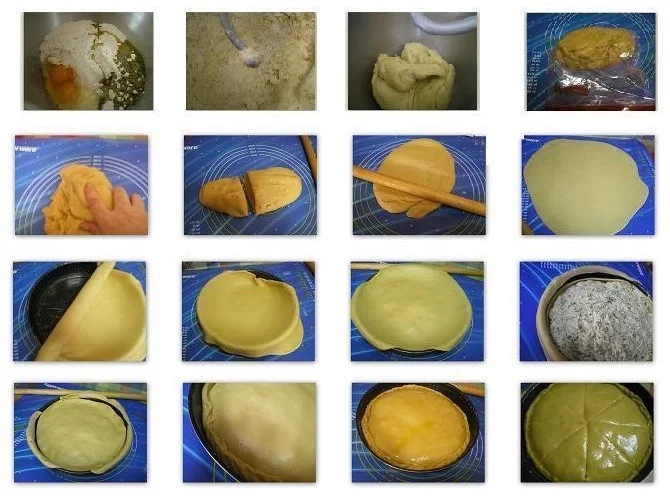
Here are some filling ideas how to use the Provençal Pastry
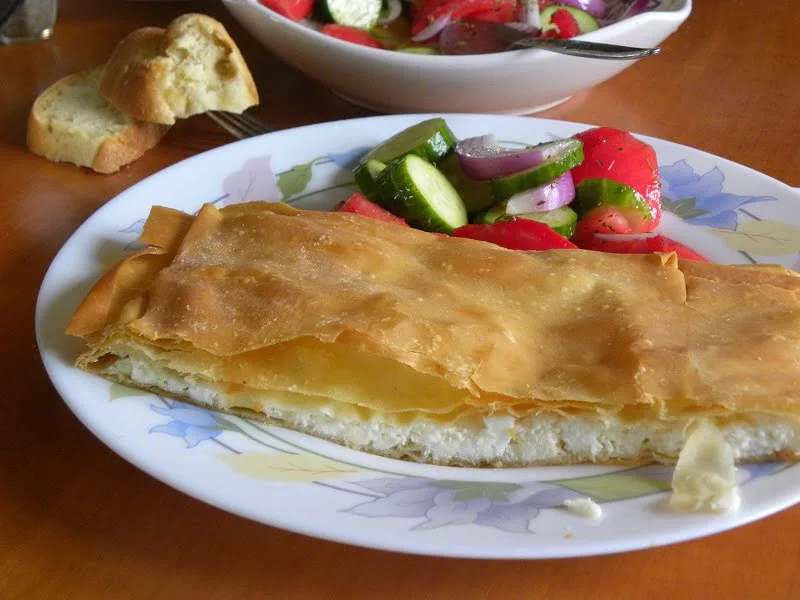
The classic Tyropita (cheese pie)
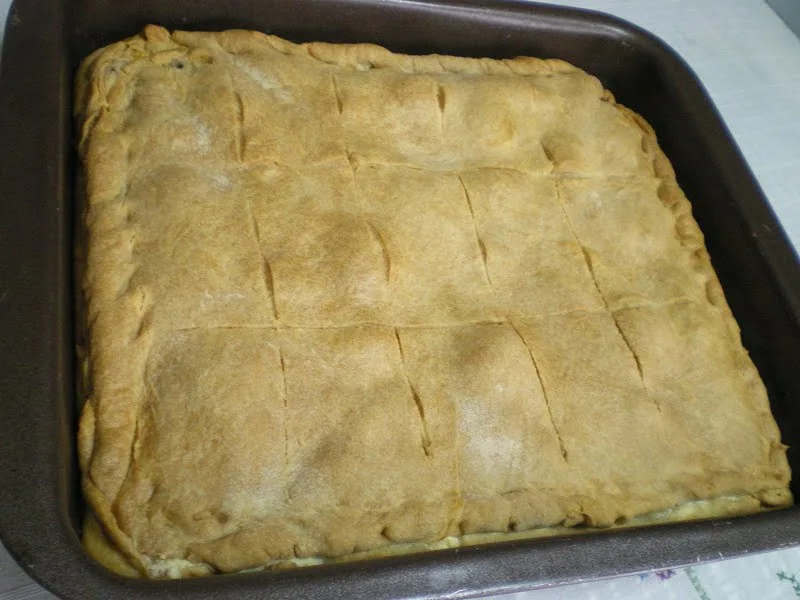
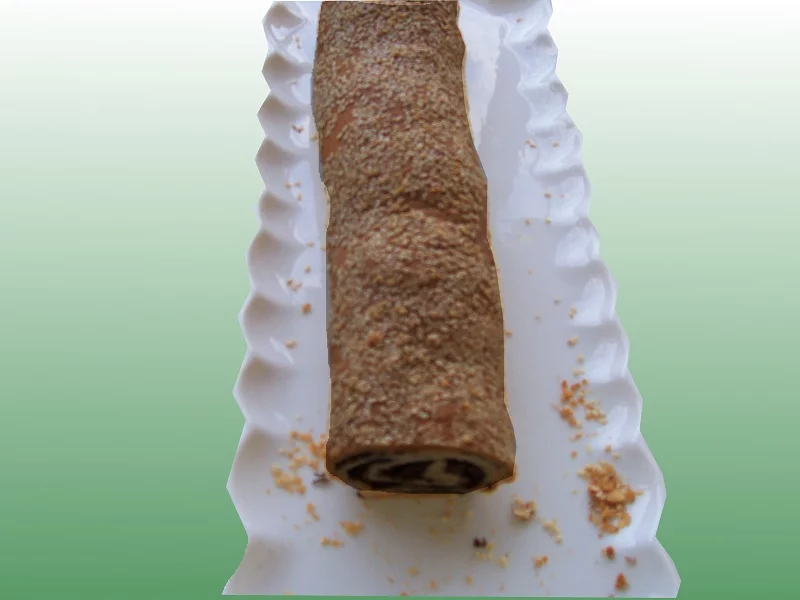
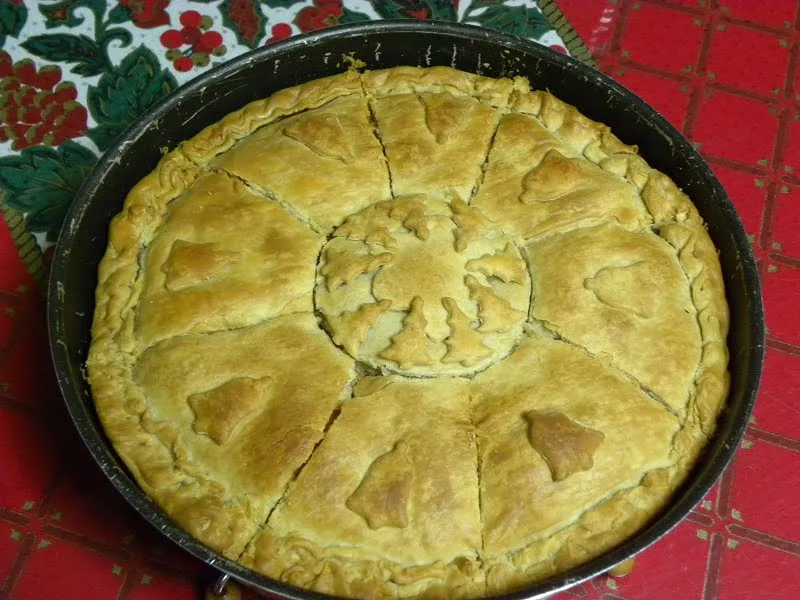
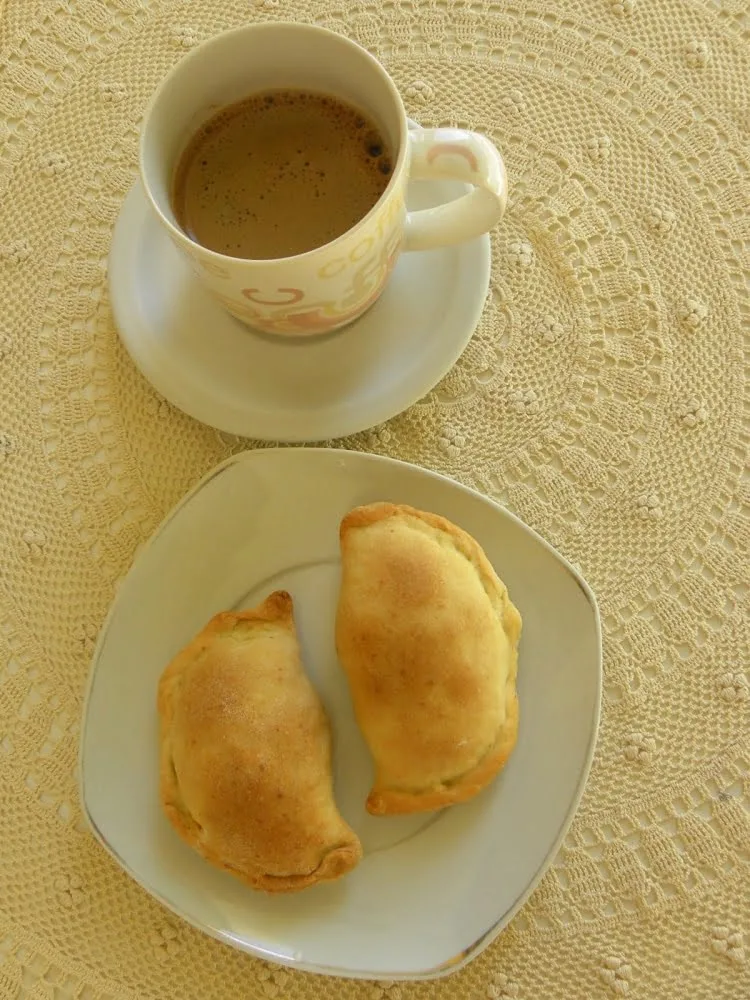
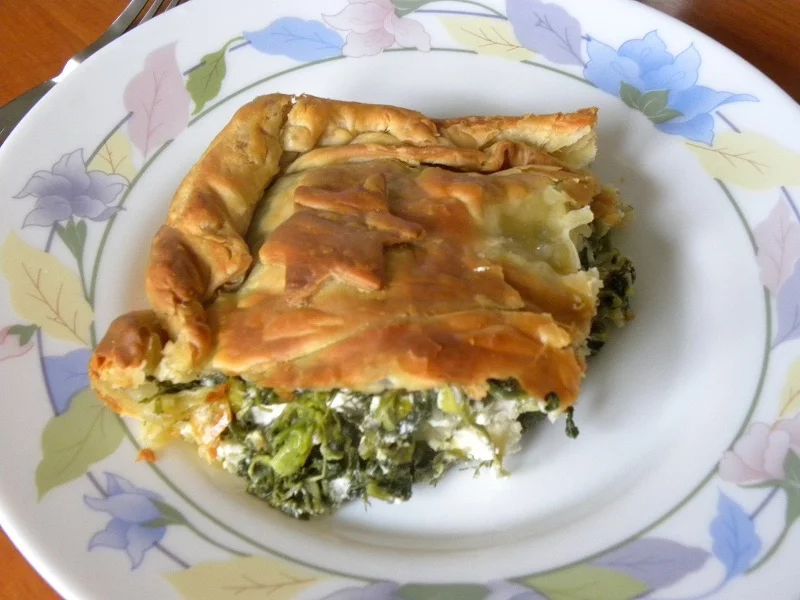
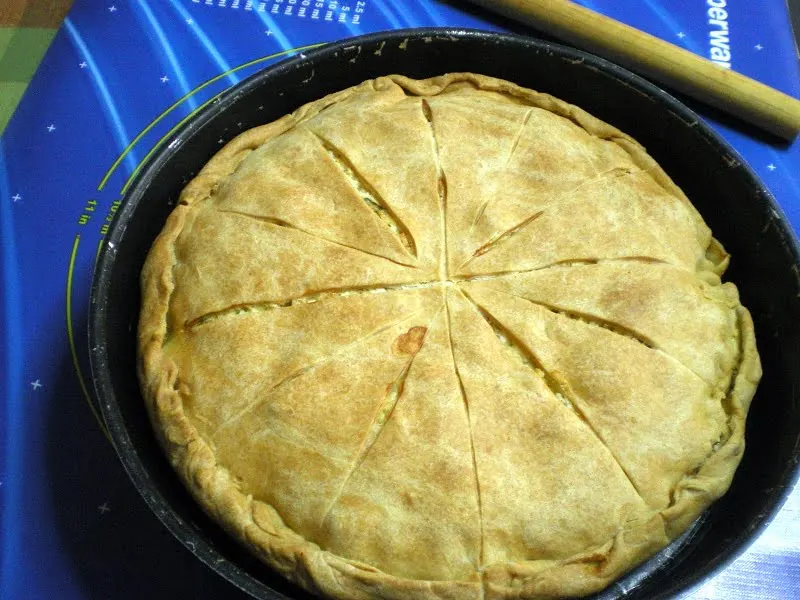
Tyropita me maratho (cheese and fennel pie)
See also other relevant dough recipes:
How to make homemade phyllo using a pasta machine
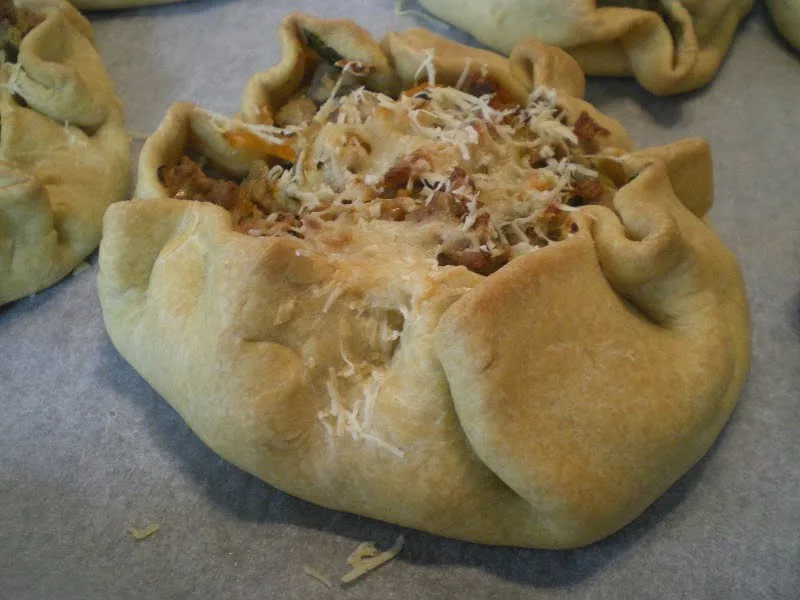
The first recipe I used this phyllo was to make a meat galette and a different meat galette with sausage.
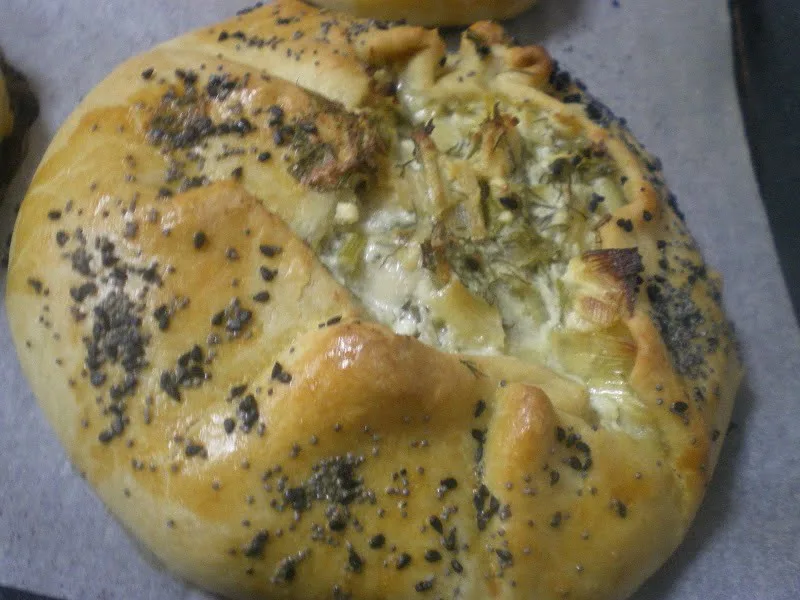
Then I made a Leek and Artichoke galette.
A Chicken Galette and many more!
You can watch the video where I make the chicken galette.
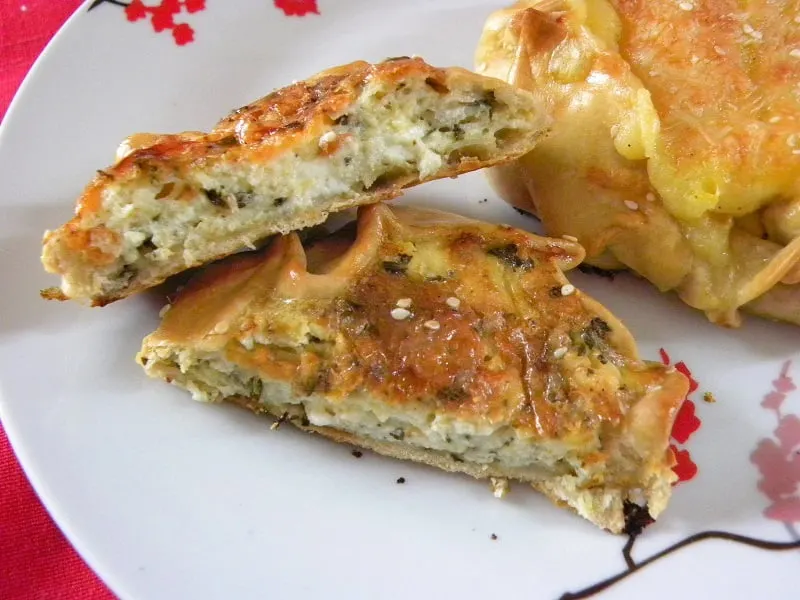
You can also use it to make sweet galettes.
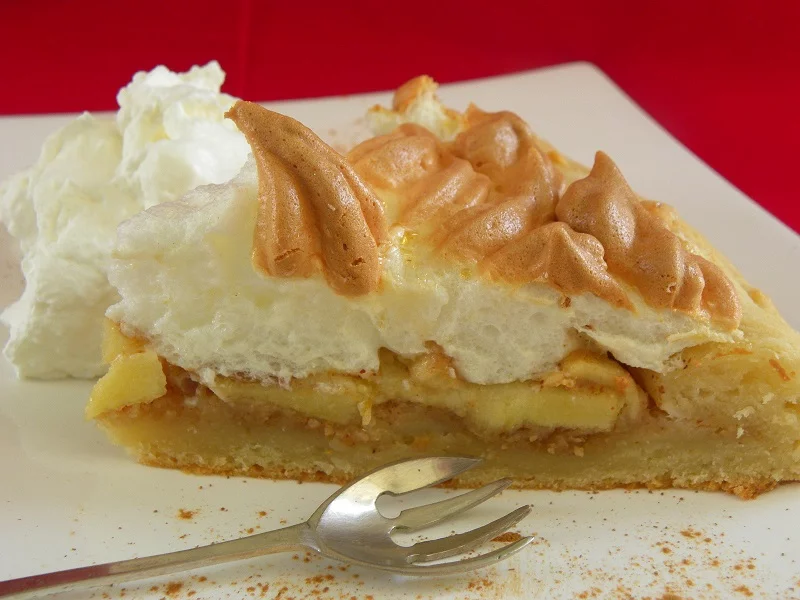
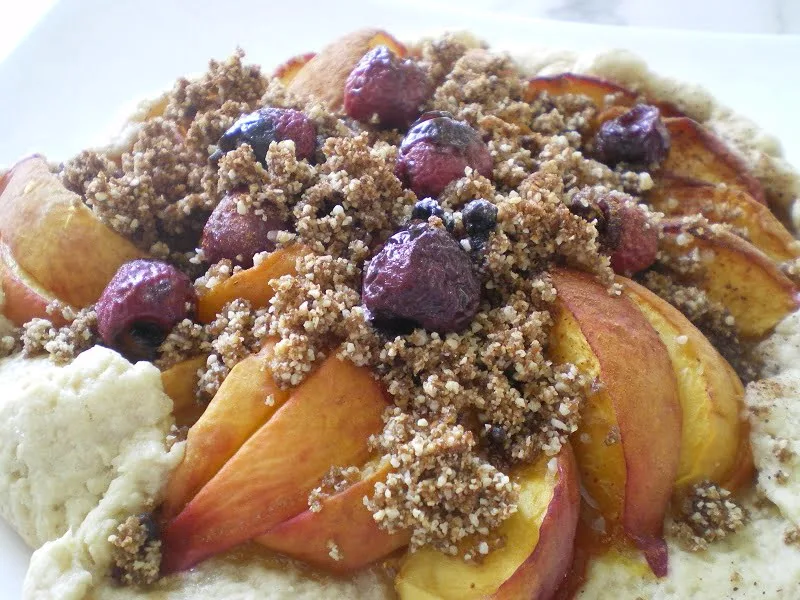
Or any other fruit galette.
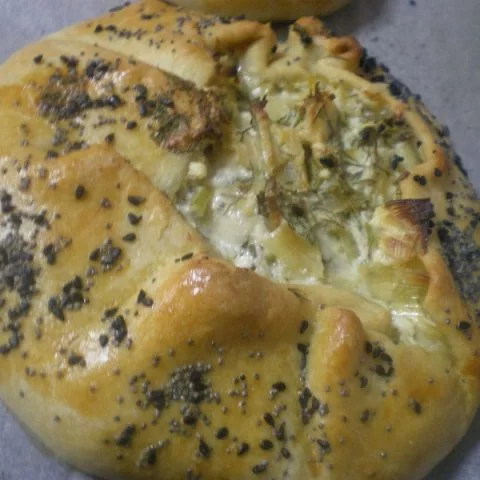
How to make Horiatiko Phyllo (Provençal Pastry)
Horiatiko phyllo which is the Greek equivalent to Provençal Pastry, is one of many types of phyllo used in Greek cuisine to make pastry.
Ingredients
- 4 cups all-purpose or bread flour
- ½ cup olive oil
- 1 eggs
- ½ cup tepid water
- ½ tsp sea salt
- ½ cup graviera cheese (my twist to the recipe, optional)
Instructions
- In a big bowl add flour, salt and olive oil and rub with your hands until all the oil is absorbed.
- Add the cheese, eggs, and mix.
- Add the water and mix until the dough does not stick on your hands or on the bowl.(Alternatively, the dough may be made in the mixer using the dough hook).
- Place in a zip bag or cover with cling film and leave the dough to rest
Making pies:
- Knead the dough for 1 minute.
- Preheat oven to 180 degrees C.
- Divide the dough into two pieces*, one of which should be slightly bigger, in order to cover the sides of the baking tin. Make two balls.
- Start from the bigger one, making sure to cover the other. Using a rolling pin try and shape the dough into a circle, rotating it each time.
- When the pastry sheet is bigger than your baking tin by an inch, it is ready.
- Brush a 28 cm baking tin with olive oil.
- Roll the pastry sheet on the rolling pin and bring it over your baking tin.
- Then carefully unfold the pastry sheet in your tin. You can easily stretch it by pulling it with your hands. Cut off any dough above the rim.
- Add the filling and cover with the second sheet, which should be the size of the baking tin.
- Take the two sheets of pastry and join them together by pressing the edges, trying to make a uniform pattern if possible.
- Brush the pastry sheet with olive oil, score into pieces and bake until golden brown.
!Making Galettes:
- Divide the dough into 5 - 6 equal pieces, depending on the size you want to make the galettes.
- Roll out the phyllo dough.
- Put the filling in the centre, leaving 3 - 4 cm empty border, around the edges.
- Fold the border up over the filling, making sure to leave a hole over the filling so that the steam can escape.
- Place the galettes in a baking tray lined with parchment paper.
- Brush the crust with an egg wash and bake until golden.
Notes
If using a non-stick mat, you do not need to flour the dough.
Recommended Products
As an Amazon Associate and member of other affiliate programs, I earn from qualifying purchases.
-
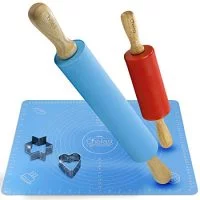 Chefast Non-Stick Rolling Pin and Pastry Mat Set: Combo Kit of Large and Small Silicone Dough Rollers, Reusable Kneading Mat with Measurements, and 2 Stainless Steel Cookie Cutters for Baking
Chefast Non-Stick Rolling Pin and Pastry Mat Set: Combo Kit of Large and Small Silicone Dough Rollers, Reusable Kneading Mat with Measurements, and 2 Stainless Steel Cookie Cutters for Baking -
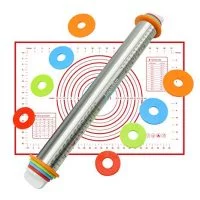 JingooBon Rolling Pin, Adjustable Stainless Steel Rolling Pins Dough Roller with 4 Removable Adjustable Thickness Rings and Pastry Mat for Baking Dough, Pizza, Pie, Pastries, Pasta and Cookies
JingooBon Rolling Pin, Adjustable Stainless Steel Rolling Pins Dough Roller with 4 Removable Adjustable Thickness Rings and Pastry Mat for Baking Dough, Pizza, Pie, Pastries, Pasta and Cookies -
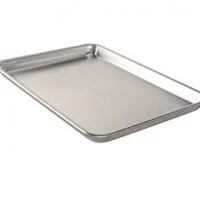 Nordic Ware Natural Aluminum Commercial Baker's Jelly Roll Baking Sheet
Nordic Ware Natural Aluminum Commercial Baker's Jelly Roll Baking Sheet
Like this post?
You can hover over this image to pin it to your Pinterest board. Also, please feel free to share it with your friends and fellow bloggers, using the share tools below.
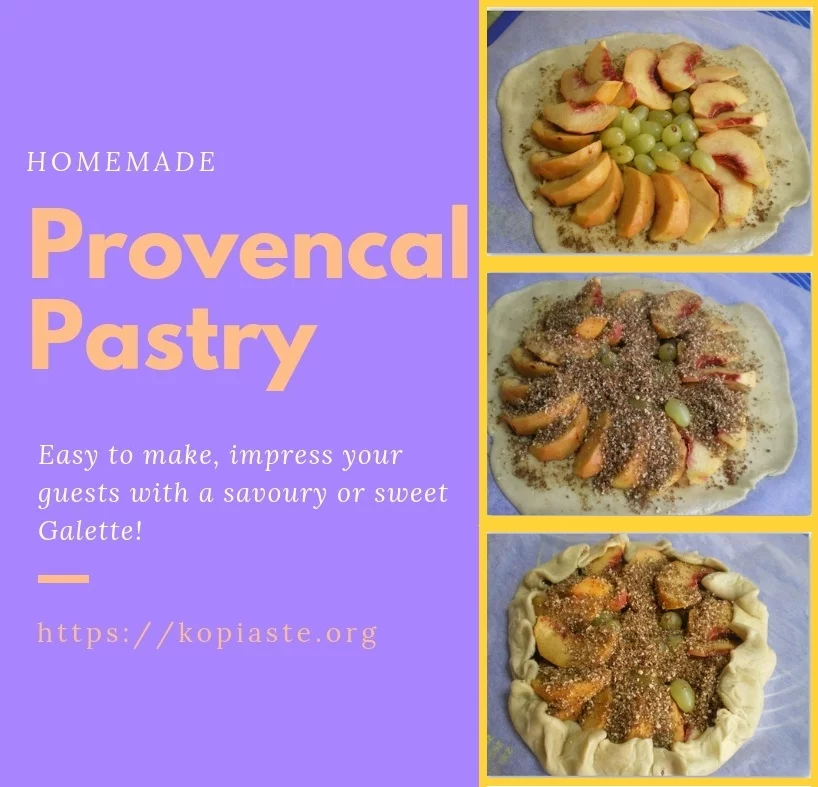
Kopiaste and Kali Orexi!


Josephine
Friday 11th of September 2009
I do a lot of cooking and love experimenting. I am interested like Adam in seeing your Fennel and Cheese Pie as well as anything else that is a little bit different to the normal everyday food. Thankyou for your sharing and informative site.
Natasha - 5 Star Foodie
Monday 22nd of June 2009
This sounds like a superb pastry dough and I love all of your creations! Delicious!
Adam
Monday 22nd of June 2009
Talk about a versatile dough! I love it, sweet or savory. It's a superhero of baking :)
I'd like to see the fennel and cheese pie. Fennel is one of my favorite herbs... I love the licorice thing it has going on.
Poornima
Sunday 21st of June 2009
Can't wait for the recipes...all of them looks so good...esp the turnovers.
Poornima's last blog post..Chana Masala
Jen of a2eatwrite
Sunday 21st of June 2009
This is marvelous! I have a real problem with pastry dough and rolling it, and I will certainly try this.